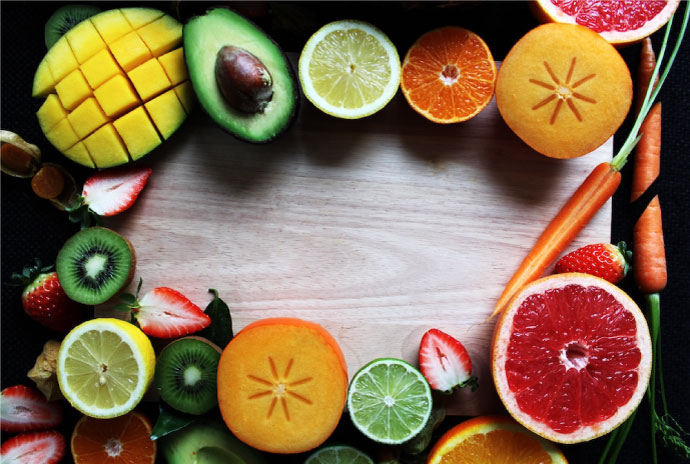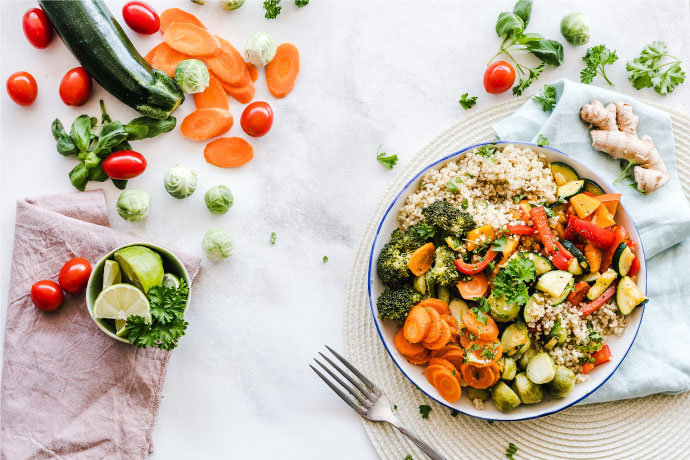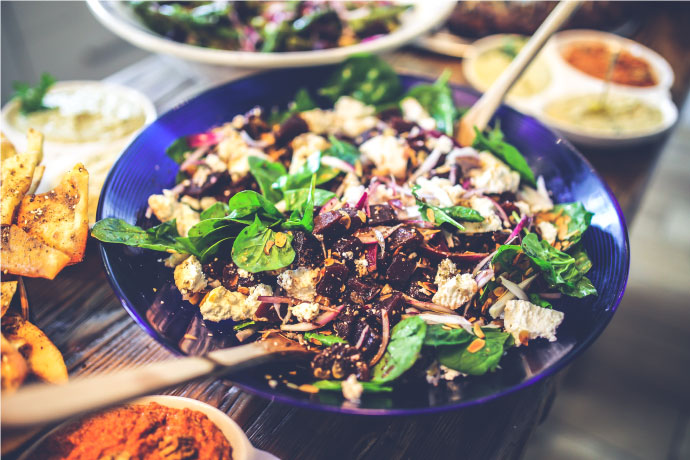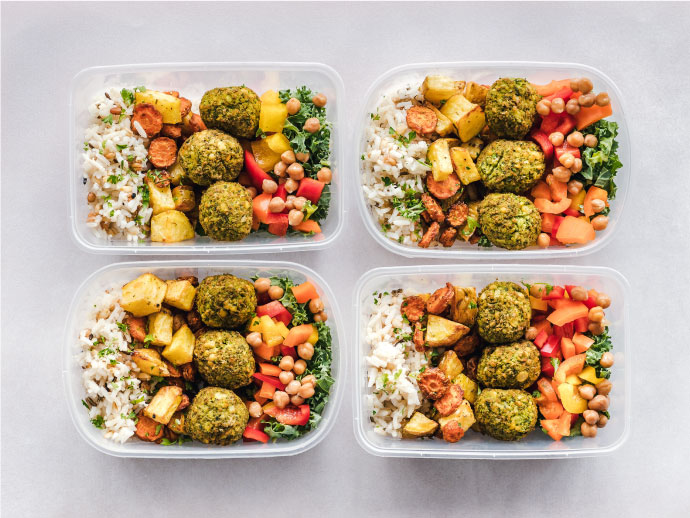
According to the National Institute on Aging, cognitive health consists of several functions. These include the ability to think clearly, learn, and remember, as well as more advanced functions such as motor, emotional, and sensory responses. Considering that the human brain is ever-changing, along with the fact that the first signs of its gradual decline appear between the ages of 40 and 50, it’s important to take a preventive approach to brain health.
Staying active and independent is essential to all human beings. If you give your body the nutrients it needs and maintain a healthy weight, you are likely to ensure your overall health will be good as time goes by.
Some of the most common diseases that affect the elderly, such as cardiovascular disease, diabetes, and osteoporosis, are all diet-related. Proper nutrition can increase resistance to illness, so following a healthy eating plan is essential when it comes to older adults.
That’s why we’ve rounded up some useful healthy eating tips for seniors, so let’s have a look.
Opt for Whole, Minimally Processed Foods

As you age, make sure to focus on smart, healthy eating choices to ensure your overall wellbeing. The first step to take is to opt for whole foods whenever possible, as they are the healthiest choice.
Choose the foods that are close to their natural forms, such as:
- whole-grain cereals, pasta, and bread (check the labels to ensure there are no additives)
- brown rice
- oatmeal
- legumes, fruits, and vegetables
Switching to a less processed diet has many possible health benefits, including a lowered risk of heart disease and type 2 diabetes, as well as preventing premature death.
If you buy packaged and canned foods every now and then, remember to read the labels carefully and choose the items lower in added sugars, sodium, and fat.
Eat More Fruit & Veggies

To maintain a healthy body and mind, make sure to include a variety of fruit and vegetables in your diet.
Aim for three daily veggie servings and two fruit servings to secure enough nutrients.
By eating different fruits, veggies, and legumes, you can reduce the risk of chronic diseases like stroke, cancer, and type 2 diabetes.
Dark green vegetables like broccoli or leafy greens (kale, spinach) and the orange ones (such as sweet potato and carrots) are especially beneficial to our health.
Watch Your Salt Intake
Our sense of taste may decline with age, especially when it comes to salt. This might result in over-salting food.
Too much salt is associated with high blood pressure and heart disease, so it is important to control the intake of this ingredient.
Instead of adding more salt, season your foods with garlic, spices, and herbs to improve the flavor of your meals.
Also, bear in mind that canned food, cheese, cereals, tinned soups, cured meats, and other processed food may contain hidden salt. When it comes to American eating habits, almost 80% of sodium intake comes from processed and packaged food, not salt shakers.
Choose the Right Fats
Not all fats are the same.
Some of them help your body produce energy, absorb vitamins, and protect your health. These fats are known as “good” or “healthy” fats.
Monounsaturated fats and polyunsaturated fats should be the main fats in a senior diet. They promote heart health and longevity, support mental health, help fight inflammation, and lower the “bad” cholesterol.
Omega-3s (a type of polyunsaturated fat) are considered to be particularly valuable for senior health. They help lower blood pressure, triglycerides, and inflammation. They can also protect you from memory loss and dementia. Furthermore, Omega-3 fats help reduce the risk of stroke, cancer, and heart disease.
Olive oil, nuts, avocado, and fatty fish (salmon, trout, herring, sardines, etc.) are some of the best food sources of good fats.
Make sure to limit the consumption of harmful fats like artificial trans fats and saturated fats, which increase the risk of heart disease and contribute to clogged arteries.
Switch from solid fats to vegetable oils when preparing meals. Opt for olive, sunflower, or canola cooking oils.

Maintain Bone Health
As calcium plays a major role in the metabolism of almost every cell in the body, its health benefits are numerous.
Including calcium-rich foods in your daily menu is crucial to protect bones and overall health. It’s just as important to get enough vitamins D and K, as well as magnesium, all of which help your body absorb calcium.
Calcium deficiency can lead to weakened bones or osteoporosis, but also to mental health problems like anxiety, depression, and sleeping issues.
Luckily, calcium deficiency and the loss of bone mass are preventable. Some of the best food sources of calcium include:
- dairy products
- leafy greens
- fish
- beans and lentils
- almonds
- sesame and chia seeds
- tofu
Since dairy products have some downsides to them, you may opt for a calcium-rich diet that excludes dairy by focusing on the other ingredients we’ve listed.
Reduce the Consumption of Refined Sugars
Refined or simple carbs are stripped of nutrients and fibers. Therefore, they offer very little nutritional value while being loaded with empty calories.
On the other hand, complex carbs like vegetables, whole grains, and fruit are health-protective, keeping your blood sugar levels stable and helping you maintain a healthy weight. They are high in nutrients and fibers and tend to digest slowly.
To prevent serious diseases like type 2 diabetes and cardiovascular issues, choose unrefined whole grains (such as brown rice), legumes, vegetables (especially the non-starchy ones), nuts, and fruit.
Fiber Up

Including enough fiber in a senior diet is vital since it can lower the risk of diabetes, hypertension, and heart disease.
Natural and unprocessed food is high in fiber. Add more whole grains, carrots, celery, tomatoes, beans, and nuts in your everyday menu to boost your overall health.
Fruits like apples, pears, berries, and citrus fruits are also high in fiber, so make them a part of your regular diet.
Wrap Up
Ensuring that you get the nutrition you need is certainly worth your time and effort. To keep it up with minimal hassle, it helps a lot to plan your meals ahead. Pair healthy eating with regular exercise, and you’ll be putting in the right kind of effort to maintain lifelong health.







